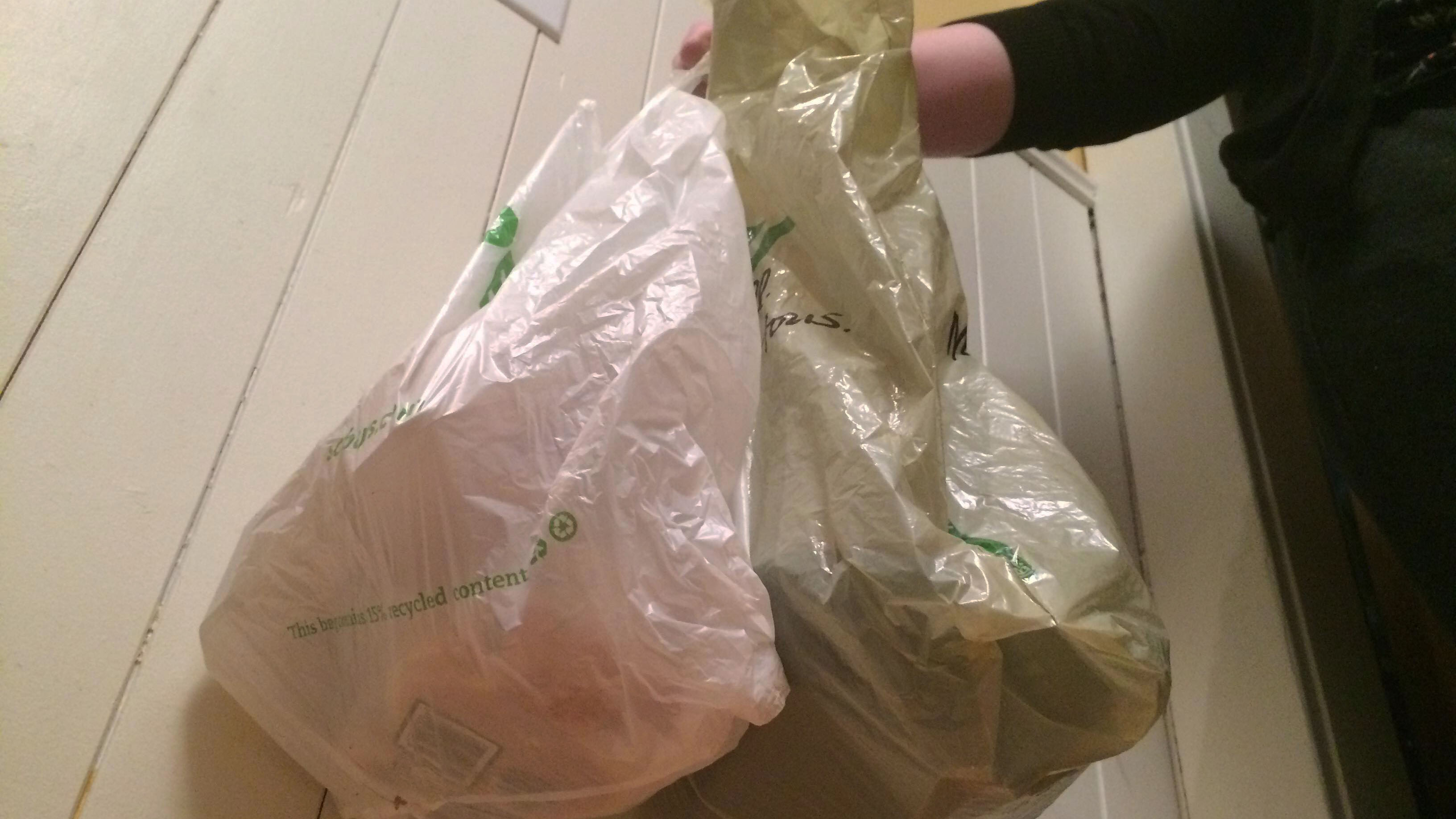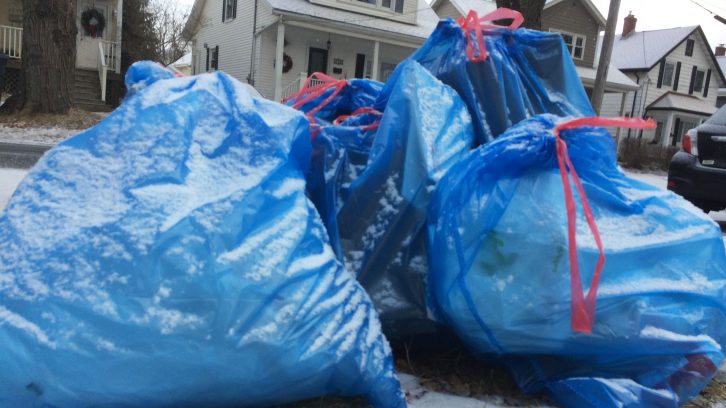Environment
Proposed plastic ban survives council vote
A new blue and black waste bin program may also help reduce plastic waste

caption
If a ban passes, plastic bags will no longer be available at stores in Halifax.Halifax regional council is one step closer to banning single-use plastic bags.
“It’s a small piece of the big picture, absolutely. But it’s still a very important piece,” said Coun. Tony Mancini in his opening remarks at Tuesday’s council meeting.
Council voted 13-4 to ask staff to draft a bylaw by the end of the year that would ban plastic bags in stores.
Plastic retail bags would be banned under a proposed bylaw that would include 10 of the largest towns and municipalities in Nova Scotia: Halifax Regional Municipality, Cape Breton Regional Municipality, Port Hawksbury, Antigonish, New Glasgow, Amherst, Truro, Bridgewater, Yarmouth and Kentville. Related stories
There was a lengthy debate over whether a mandatory ban was possible. Municipal staff opposed the ban, suggesting instead a voluntary program for retailers.
Coun. Steve Streatch agreed the first line of action shouldn’t be a ban, but voluntary action.
Whereas, policy and outreach program manager Laurie Lewis said it would only impact one per cent of the 20 per cent of plastic waste that enters landfills across the province.
Mark Butler, policy director of the Ecology Action Centre, said plastic bags harm wildlife.
“Whales and turtles ingest those plastic bags and it can block their digestive system,” said Butler.
Many councillors said they were unsure of how they would vote when the bylaw comes back to council later this year.
Blue and black bins
The potential ban on single-use plastic bags has sparked another waste management debate: blue bag recycling and clear garbage bags. On Tuesday, Coun. Sam Austin proposed a new blue and black waste bin system to reduce the purchase of single-use plastic bags.

caption
Blue recycling bags on the curb of a Halifax street.The bins would be similar to the current green bin system for compost.
Austin said they would eliminate the need to buy plastic bags for the sole purpose of putting out recycling and trash on the curb. He also said the benefits would extend beyond the environment.
“It would put money back in people’s pockets because you would greatly reduce the number of bags they would potentially have to buy to manage waste in their house,” said Austin.
Blue and black bin programs already exist across many Canadian cities including Montreal, Vancouver and Toronto.
The full cost for tax payers is still unknown. Trucks and waste facilities may also need upgrades to account for the new bins. It’s not clear exactly what those changes would look like.
A report to look into blue and black bins was unanimously passed by council.


D
Dave Hingley